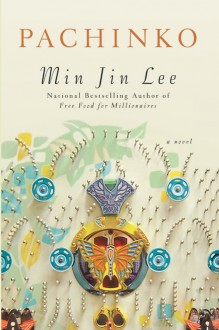
It took me almost four months to read Pachinko. As I read, I began wondering about my slow pace. My fall semesters are busier, yes, but I still manage to finish most books in what's a timely manner for me. It certainly wasn't because I found the book hard to read in terms of comprehension or engagement. As I got closer to the end, I realized: it was because I was so invested in the characters and storytelling I had to take time to process the intense feelings the novel evoked. There are also regular gaps in time that take place between chapters where characters' situations change significantly; I needed mental space before diving into the story again. I can't think of another novel that required this sort of reading from me.
In addition to Rushdie's The Moor's Last Sigh, Pachinko has served to establish that "family sagas" can engage me, or at least when another culture is involved. Through the family portrayed here, I learned more about Korea, but it never feels like a history lesson. Everything comes from the characters. The novel also provokes thought about national and racial identity.
There were moments I dreaded, as with the return of a less sympathetic character, though not in a way that made me dislike the novel or its author. There were moments that shocked me to the point of gasping. There are many scenes that easily and vividly come to mind when I recall my reading, which I finished more than a month ago.
I would love to teach this novel. I have the feeling I may reread it some day, regardless. For me, that's a rarity, a compliment, and a sign of deep gratitude.


 Log in with Facebook
Log in with Facebook 







